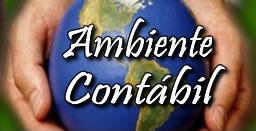Navigating the rivers of sustainability in the Amazon: the dilemma of accounting for carbon credits
DOI:
https://doi.org/10.21680/2176-9036.2025v17n1ID35001Keywords:
Environmental Accounting, carbon credit, EnvironmentAbstract
Purpose: This teaching case aims to encourage discussions about the accounting treatment of carbon credits by presenting a fictional story about a female accountant, head of an ecologically sustainable family business called Econorte. Through the teaching case, lecturers and students from accounting courses will be able to discuss the bookkeeping of carbon credits from sustainable companies.
Methodology: The methodology of this case for teaching is mixed, as it starts from a process of reflexivity on the importance of studies from accounting for carbon credits to classification, accounting and explanations/justifications for such records.
Results: Based on the data presented in this case for teaching, it is possible to reflect, classify, record and justify the importance of accounting for carbon credits.
Contributions of the Study: The case contributes as an instrument that can be applied in the subjects of Environmental Accounting, Environmental Management, Socio-environmental Responsibility and Sustainable Development in undergraduate courses in the business area, mainly in the Accounting Sciences course.
Downloads
References
Adams, W. M. (2006). The future of sustainability: Re-thinking environment and development in the twenty-first century. World Conservation Union.
Andrade, F. (2018). A Amazônia além das florestas, dos rios e das escolas: representações sociais e problemas ambientais. Ambiente & Sociedade, 21, 1-20. https://doi.org/10.1590/1809-4422asoc0250r1vu18L3AO.
Barbosa, G. S., Drach, P. R., & Corbella, O. D. (2014). A conceptual review of the terms sustainable development and sustainability. International Journal of Social Sciences, III(2).
Brandão, A. S., Oliveira, R. R., Almeida, V. F., & Guidi, A. C. (2020). Importância da contabilidade ambiental nas organizações. Revista Eletrônica do Mestrado Profissional em Administração da UnP, 12(1), 47-60. https://doi.org/10.21714/raunp.v12i2.2130.
Blewitt, J. (2008). Understanding sustainable development. Earthscan.
Calixto, L. (2006). O ensino da contabilidade ambiental nas universidades brasileiras: um estudo exploratório. Revista Universo Contábil, 2(3), 65-78.
Ciegis, R., et al. (2009). The concept of sustainable development and its use for sustainability scenarios. Inzinerine Ekonomika-Engineering Economics, 20(2), 28-37.
Dias Leite, E., Gravina, D. N., & Santos, S. R. F. (2021). A importância do papel da contabilidade ambiental: Caso CEMIG. Revista de Administração do Cesmac, 9, 28-43.
Ferreira, A. C. S., Bufoni, A. L., Marques, J. A. V. C., & Muniz, N. P. (2007). Protocolo de Kyoto: uma abordagem contábil. IX ENGEMA - Encontro Nacional sobre Gestão Empresarial e Meio Ambiente. Recuperado em 12 de agosto de 2022, de www.bufoni.com/publica/kyoto.pdf.
Gatto, M. (1995). Sustainability: Is it a well-defined concept? Ecological Applications, 5(4), 1181-1183.
Kolb, D. A. (1984). Experiential learning. Prentice Hall.
Quental, N., et al. (2011). Sustainability: characteristics and scientific roots. Environmental Development Sustainability, 13, 257-276.
Limas, M. R., Rodrigues, R. S., Ribeiro, S. P., & Souza, M. A. B. (2020). Um panorama do ensino da disciplina de contabilidade ambiental no curso de ciências contábeis de universidades federais brasileiras. Caderno de Administração, 2(14), 01-22. https://doi.org/10.23925/2595-4865.v14n2.2020.46020.
Maciel, V. C., et al. (Data de publicação não disponível). Crédito de Carbono: comercialização e contabilização a partir de projetos de mecanismo de desenvolvimento limpo. Recuperado em 15 de agosto de 2022, de https://periodicos.ufpe.br/revistas/ricontabeis/article/view/7914/7991.
Mello, A. F. (2015). Dilemas e desafios do desenvolvimento sustentável da Amazônia: O caso brasileiro. Revista Crítica de Ciências Sociais, (107), 91-108. https://doi.org/10.4000/rccs.6025.
Mebratu, D. (1998). Sustainability and sustainable development: Historical and conceptual review. Environmental Impact Assessment Review, 18(6), 493-520.
Paehlke, R. (2005). Sustainability as a bridging concept. Conservation Biology, 19(1), 36-38.
Pivetta, M. (2020). Amazônia, agora, é fonte de CO² - entre 2010 e 2017, a floresta tropical emitiu mais carbono do que absorveu. Pesquisa FAPESP, (287). Recuperado em 14 de julho de 2022, de https://revistapesquisa.fapesp.br/amazonia-agora-e-fonte-de-co2/.
Rosário, M. J. A., Souza, M. F. M., & Rocha, G. O. R. (2021). Desenvolver a Amazônia com justiça ambiental: questões para repensar os problemas da educação regional. Revista Lusófona de Educação, 52(52), 201-214.
Rober, O. (Data de publicação não disponível). Ativos Intangíveis-Registro Contábil. Recuperado em 10 de agosto de 2022, de http://cruzeiro.inf.br/notícias.php?id=108.
Ribeiro, M. S. (2005). O tratamento contábil dos créditos de Carbono. Universidade de São Paulo. Recuperado em 09 de agosto de 2022, de www.teses.usp.br/teses.
Tasso, C. C., & Nascimento, E. Q. (2005). Protocolo de Quioto – Análise dos Aspectos Contábeis do Mercado de Carbono. 3º Simpósio FUCAPE de Produção Científica. Recuperado em 15 de agosto de 2022, de https://silo.tips/download/protocolo-de-quioto-analise-dos-aspectos-contabeis-do-mercado-de-carbono-autores.
Uhlmann, V. O., et al. (Data de publicação não disponível). Tratamento contábil dos créditos de carbono: uma análise à luz das normas do Comitê de Pronunciamentos Contábeis. Recuperado em 15 de agosto de 2022, de https://anaiscbc.abcustos.org.br/anais/article/view/627.
Yolles, M., & Fink, G. (2014). The sustainability of sustainability. Business Systems Review, 3(2), 1-32.
Downloads
Published
How to Cite
Issue
Section
License
Copyright (c) 2025 REVISTA AMBIENTE CONTÁBIL - Universidade Federal do Rio Grande do Norte

This work is licensed under a Creative Commons Attribution-NonCommercial-ShareAlike 4.0 International License.
Authors who publish in this magazine agree with the following terms:
Authors keep the copyrights and concede the right of its first publication to the magazine. The work piece must be simultaneously licensed on the Creative Commons Attribution Licence which allows the paper sharing, and preserves both the author identity and the right of first publication to this magazine.
Authors are authorized to assume additional contracts separately, to not-exclusively distribution of the paper version published in this magazine (e.g.: publish in institutional repository or as a book chapter), with the author identity recognition and its first publication in this magazine.
Authors are permitted and stimulated to publish and distribute their papers online (e.g.: in institutional repository or on their personal webpage), considering it can generate productive alterations, as well as increase the impact and the quotations of the published paper.
Creative Commons - Atribuição-NãoComercial-SemDerivações 4.0 Internacional.


 Português (Brasil)
Português (Brasil) English
English Español (España)
Español (España)


